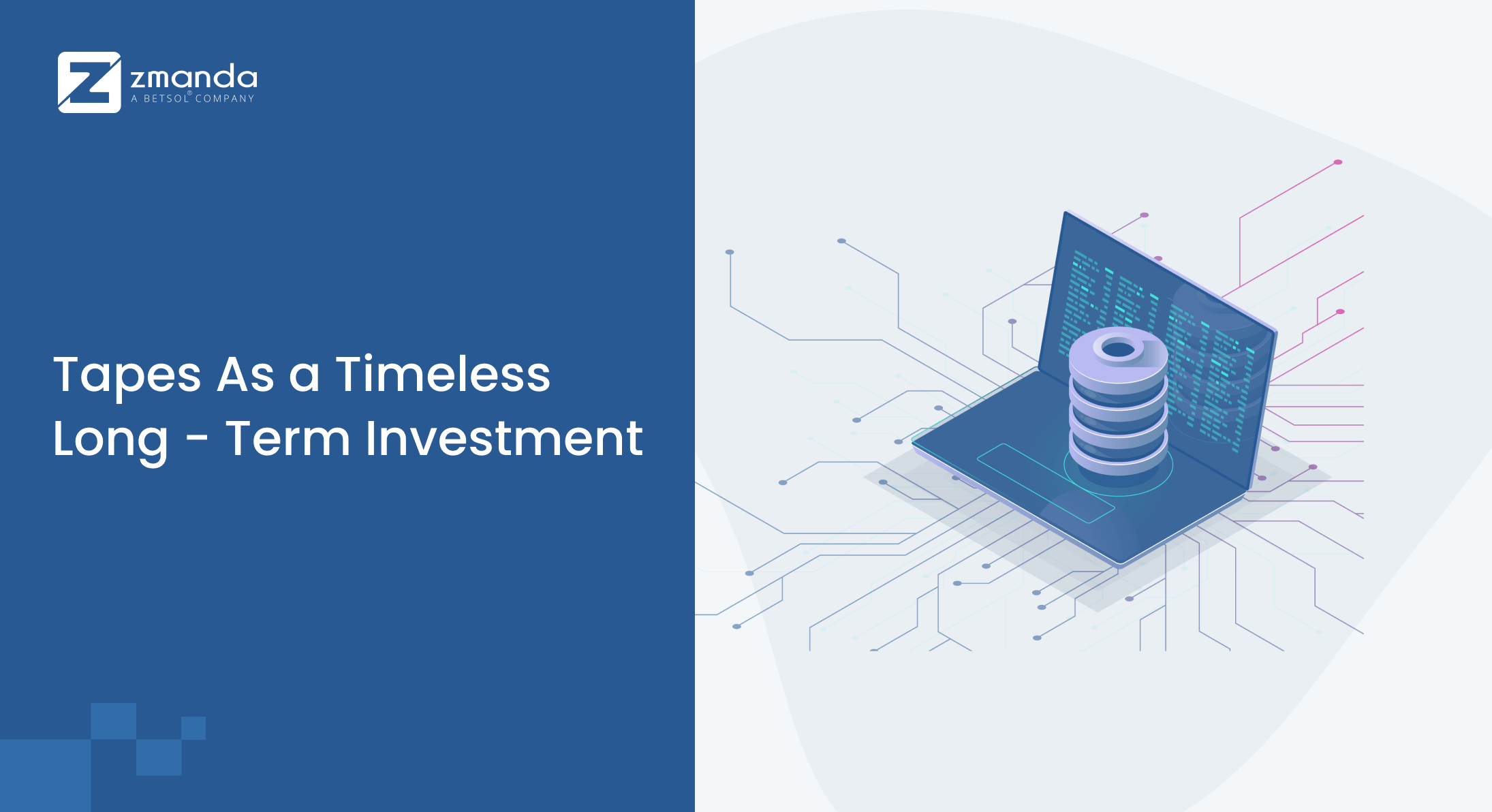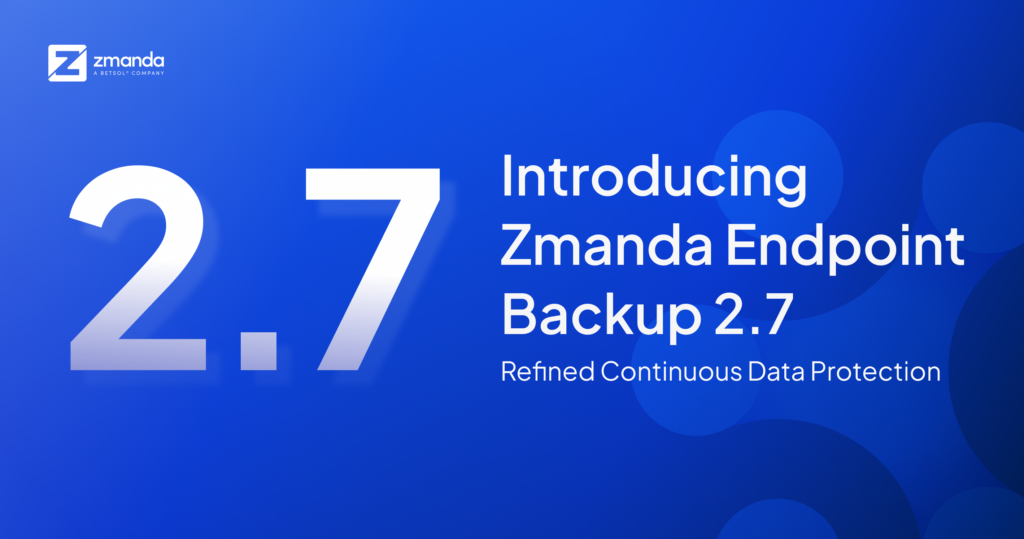
“Data is a precious thing and will last longer than the systems themselves.”
Tim Berners-Lee, inventor of the World Wide Web
Just like Tim said, data is endless, priceless, and immortal. With such great power, comes very great responsibility. Data is responsible for the functioning of every appliance and application that relies on it. The absence of data and its power is equivalent to traveling back in time to the ’60s.
Having established that data is key, the first thought that would pop up is “what’s the catch?” because everything good comes with a price. Data’s price is the investment made in data storage, security, and preserving its integrity. Now let’s take a closer look at the evolution of data storage, where it all began.

Data storage has been revamped from its introduction in the early 1880s with Punch Cards to the 1950s with the introduction of Magnetic tapes, to 1960s hard drives, to 1982s CD-ROMs, and current-day Cloud storage. In recent times, most people would associate data storage with the cloud without a moment’s hesitation. But this is where we are gravely mistaken.
Cloud storage undoubtedly has its perks and has revolutionized over time while magnetic tapes have had their foundations deeply rooted into data storage and continue to thrive to date. Despite common misconceptions, magnetic tapes are in reality used immensely in the background for data backups. With very little light thrown their way, magnetic tapes have indeed been taken backstage with the spotlight on cloud storage, but they are yet to find a worthy opponent when it boils down to offering durability and rigidity.
Let’s take a plunge into magnetic tape storage and its advantages with a couple of indisputable facts to strengthen our perception of tapes.
As the name suggests, magnetic tape is composed of a thin plastic ribbon coated by magnetic oxide and stores memory sequentially. It came into the picture for recording in the audio industry. Magnetic tape storage has a capacity ranging from 1MB to a substantial size of 15TB which can be further increased by integrating multiple tapes. The tape comprises of a read-write head to access the memory which is accompanied by a feature that truly sets tape storage apart, the air gap. The air gap is an electronically disconnected or isolated copy of the data present in a robotic library or tape rack that prevents all kinds of software-associated attacks. Ransomware attacks, cyberattacks, viruses, attempts by hackers are all cast away by tapes due to their air gap. In a world filled with electronics in every nook and corner, this feature is of great utility. In present-day scenarios, magnetic storage’s primary service is vaulting, where enterprises use magnetic tapes to back up their digital data and preserve them either on-site or off-site to act as a safety net in the event of a natural disaster or an untoward event.
Let’s bust a few myths and misconceptions surrounding magnetic tape storage. It will tip the balance towards tape storage by a great deal.

1.Aren’t tapes considered to be expensive in comparison with cloud storage?
Answer:
Cloud storage works as a pay-as-you-go service. On the other hand, tapes only require a one-time upfront capital cost. A key point to remember is data storage services are dependent on the type of data to be stored.
Data stored on tapes are usually backups and old records that may come into play in case of audits etc. Such data is often referred to as cold storage as they are rarely accessed. If these records are backed up for years together, cloud storage would be expensive concerning the costly upfront cost invested in magnetic tapes.
Further, in terms of data restoration, backups from the cloud would require an additional cost for utilizing the internet to retrieve the backup. With the amount of data under consideration, such costs are a game changer when compared to the null amount paid for the same in the case of tapes. Tapes being either onsite or offsite would only require a minimal transportation cost that is negligible when compared to the time and cost invested in data rates and internet for cloud backup.
In a nutshell, tape backup is a more economical solution for data backup when paralleled with cloud storage considering the type of data in question.
2. Isn’t cloud storage a more viable and secure option than tapes in the case of backups?
Answer:
Infrequently accessed data i.e, cold storage, is used for backups and storing old records, etc. Such data is stored in the form of objects present in a bucket in either the archive tier or the cold vault tier where the cost for storage is cheap. However, the speed of access to these tiers will be slow in contrast to the access time of frequently accessed data. This leads to the requirement of a long duration of time to retrieve the backed-up data when in reality it is required instantaneously. On the other hand, data present off-site or on-site in magnetic tapes can be retrieved quickly and hence is a portable media that is advantageous.
In terms of data security, tapes offer various encoding schemes like the 10 to 8 bits encoding, etc. Moreover, with tapes being a physical form of storage, vaults that store these magnetic tapes are built fire-proof and are made disaster-resistant. Clouds may offer a wider variety of data security techniques but are equally more susceptible to numerous risks such as cyber-attacks etc. Further, complete reliance on the cloud provider for data security might lead to the introduction of a variety of problems as the entire process is completely centralized which may cause more harm to the data than offering it protection.
3. Why not opt for the faster and cheaper hard drive over magnetic tapes?
Answer:
A common misbelief is that hard drives being more compact and economical is the obvious choice for storage. However, on drawing a close comparison between the two, we observe that the benefits of tape storage trumps its cost.
- Scalability: Magnetic tape storage offers improved scalability than hard drives. It is easier to obtain extra storage for magnetic tapes by simply procuring more of them, while hard disks would include the process of RAID and dataset manipulation. Companies with increasing clientele, constantly upscaling to meet the needs of the market etc, often find themselves indulging in tape backup due to its ease of scalability and the need for a fool-proof backup system for all their data.
- Cost: Despite disks requiring a cheaper investment for storage, maintenance cost is a dominant factor to consider. Disks require capital for power and cooling purposes, which averages out to have a higher investment than tapes as a whole.
- Bit Error Rate: Tape storage has better bit error rates than hard drives. It implies that far more data is written without error in tapes than most storage devices. This feature emphasizes the ease with which data can be written to tape with the least number of errors and hence at a cheaper price as it prevents the need for error correction mechanisms or from data having to be overwritten.
- Stability : Tape storage have a simple read and write mechanism in contrast to the complicated working of a hard drive. They also have multiple moving parts that may result in different failures. The absence of such moving parts prevents magnetic tapes from being susceptible to hardware failures and thus increases their stability. This stability is key for data backup as backup is expected to be a hundred percent reliable and resilient against online attacks or any offline mishaps that may be possible.
- Data Corruption: Tape storage offers a resilient approach to data storage through its sequential storage access and thus reduces the possibilities of data corruption.
In a nutshell, magnetic tapes are best suited for long-term off-site storage while hard drives are suited for short-term on-site storage.
Busting myths aren’t getting the job done?
Let’s take a closer look at magnetic tapes in action, lending its powerful hand in data backups and in providing an assurance of reliability to its clients.

Technical giants like Amazon, Google, and Microsoft have their backups stored in tapes. With a need for resilient and trustworthy backup, magnetic tape storage was their unanimous choice. Take for instance Haas Cabinet’s owner Carlos, what started as a hobby in his barn in Indiana, is now a highly sought-after company for styling your living space. They offer do-it-yourself workspaces and personal one-on-one consultancy with their clients to offer the best-customized solutions. With countless advancements and a growing customer base, their need for data storage increased and became of prime importance. Their data storage option? You guessed it right, tapes. With Zmanda’s competence, a well-integrated and easy-to-maintain backup system was up and running to cater specifically to the needs of Haas Cabinet.
Wrapping up
All this said and done, are you wondering where to get yourself a service to back up your tape data? Zmanda offers you the best services for magnetic tapes right here. Here we provide the best integration services to accommodate all your data in a hybrid environment. Still worried about magnetic storage being an odd part of the puzzle of existing data storage? Worry not as Zmanda offers the best tape auditing services. We have our experts auditing your tape backups and persisting data storage to give you tight-knit data storage services. The discarding of unnecessary data, updating existing backups, timely maintenance of data, prevention of data degradation, and other such auditing services is Zmanda’s forte.
All data is one and the one for all data is Zmanda. Data storage has just never been easier. With our foundations in tape storage since the early ’20s and with immense experience and expertise, we are here to provide you with the best of services and a promise to deliver.
Click right here to book yourself a free trial. Interact with our team to work out an economical solution that caters to all your requirements in a hassle-free manner.
FREE eBook
Tape Backup for Dummies
The Ultimate Guide to Seamless
Data Storage and Archival



